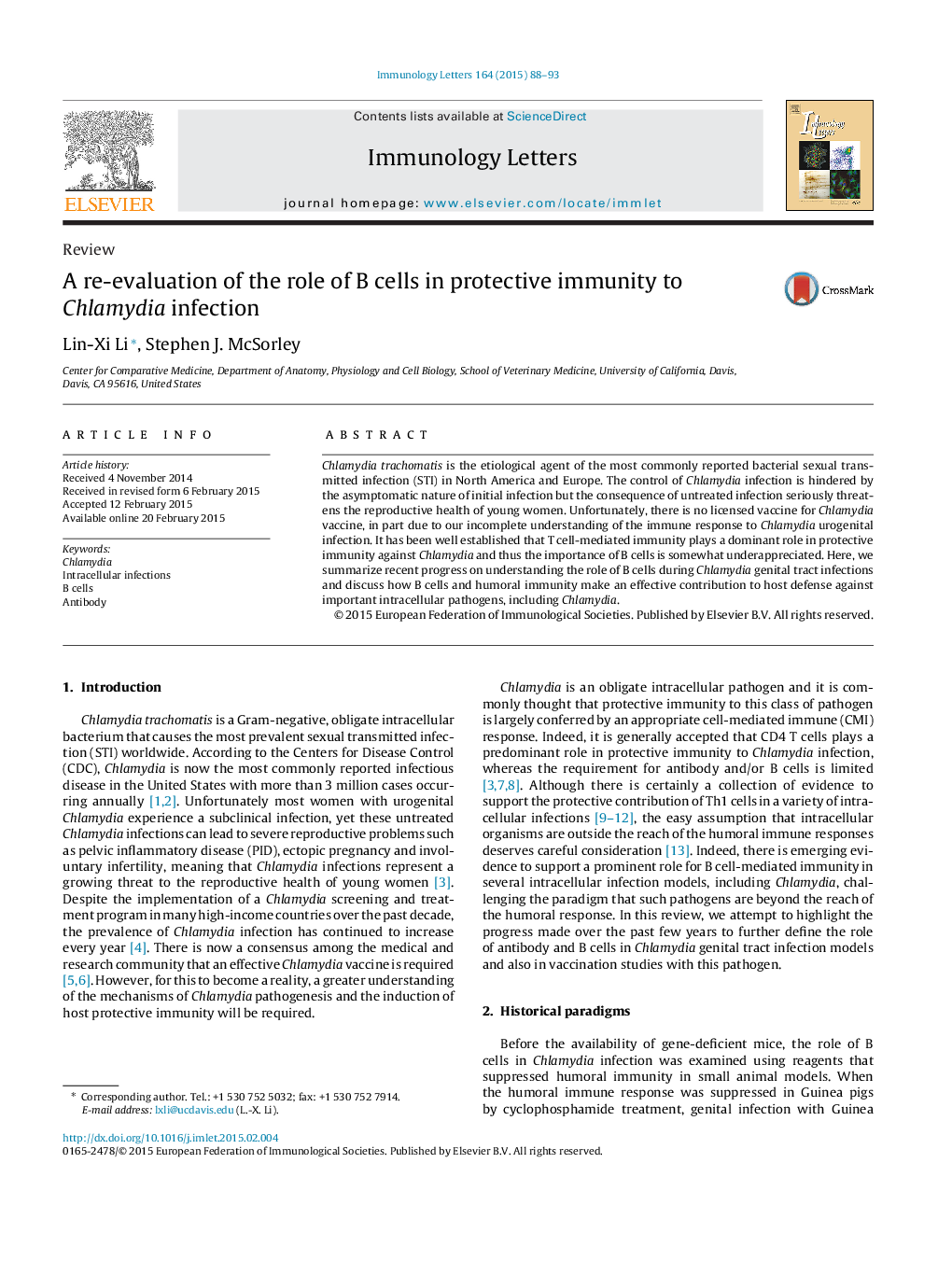| Article ID | Journal | Published Year | Pages | File Type |
|---|---|---|---|---|
| 3355342 | Immunology Letters | 2015 | 6 Pages |
•Chlamydia is the most commonly reported bacterial STI worldwide.•T cells, but not B cells, are thought to be important for Chlamydia clearance.•We summarize recent progress on understanding the role of B cells in Chlamydia infection.•We discuss how B cells can contribute to host defense against intracellular pathogens.
Chlamydia trachomatis is the etiological agent of the most commonly reported bacterial sexual transmitted infection (STI) in North America and Europe. The control of Chlamydia infection is hindered by the asymptomatic nature of initial infection but the consequence of untreated infection seriously threatens the reproductive health of young women. Unfortunately, there is no licensed vaccine for Chlamydia vaccine, in part due to our incomplete understanding of the immune response to Chlamydia urogenital infection. It has been well established that T cell-mediated immunity plays a dominant role in protective immunity against Chlamydia and thus the importance of B cells is somewhat underappreciated. Here, we summarize recent progress on understanding the role of B cells during Chlamydia genital tract infections and discuss how B cells and humoral immunity make an effective contribution to host defense against important intracellular pathogens, including Chlamydia.
